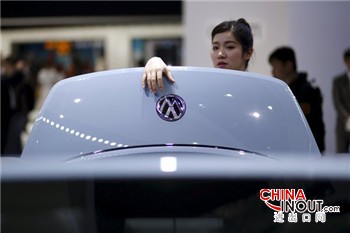中國是大眾汽車(Volkswagen)的最大市場,此外它還在和通用汽車(General Motors)爭奪該國最大汽車制造商的地位,。但它的柴油丑聞可能不會在這里產生太大影響,。
這是因為大眾在中國銷售的車型中幾乎沒有柴油車——公司每年在中國銷售300萬輛車,其中不到1000輛是柴油動力,;汽油動力汽車是在中國占據絕對優(yōu)勢,。
這并不是因為大眾沒有嘗試過銷售柴油車。
為了把作為柴油動力領先者的成功復制到中國來,,大眾在北京游說了好幾年,,希望能在中國生產柴油動力車。但在中國,,一半以上的石油都是進口的,,大眾的懇求在監(jiān)管部門那里屢屢碰壁——部分是環(huán)境問題,部分是因為政府想把相對稀缺的柴油留給卡車和農用拖拉機使用,。
因此,,大眾在中國銷售的柴油動力車全部都從歐洲進口,主要出售給出租車公司,。
中國監(jiān)管部門對柴油動力車相關的環(huán)境問題很關心,,他們與美國專家頻繁接觸,尤其是國際清潔交通委員會(International Council on Clean Transportation)的專家,。這是一個非營利性的研究機構,,正是他們將大眾汽車柴油發(fā)動機性能不足的問題記錄下來,報告給了美國國家環(huán)境保護局(Environmental Protection Agency),。
與歐洲的專家們相比,,美國研究人員長期以來更擔心的是柴油車排放物致癌的可能性。此外,,柴油機廢氣中的顆粒物通常多于汽油發(fā)動機,。而在中國北方塵沙天氣中,顆粒物是一大健康問題,,導致了北京本身就嚴重的空氣污染進一步惡化,。
更糟糕的是,直至最近,,中國的很多煉油廠在從原油中提取柴油時,,缺少將自然產生的硫污染物除去的技術。結果便是柴油作為卡車燃料燃燒時產生大量污染,,導致監(jiān)管機構不敢輕易讓全國增長最快的小汽車也使用柴油,。
在中國,,大眾面臨的另一個困難涉及中國消費者。購車者長期對柴油持懷疑態(tài)度,,會把它和拖拉機聯(lián)系起來,,認為這種車比較低級。但大眾的高管一直表示,,只要能獲準在中國大量生產柴油車,,他們有信心通過有力的廣告和公關活動來改變這些觀念。
很長一段時間以來,,柴油車一直是一種權衡的產物,。它帶來的空氣污染更嚴重,哪怕用的是清潔提煉的柴油,,但它的燃油效率也更高,。歐洲市場高度重視節(jié)燃油經濟性,部分油效標準是全世界最嚴格的,。中國和美國的油效標準多少沒那么嚴格,,但既便如此,對大量生產大型車輛和運動型多功能車的汽車生產商來說,,要達到這些標準也還是有困難的,。作為一家歐洲汽車生產商,大眾積累了大量生產節(jié)能柴油車的專業(yè)知識,,并在2000年前后開始在中國展開游說行動,。
但從2008年左右以來,大眾高管在中國推銷柴油車的力度減弱了,。這可能是因為它們開始在中國生產昂貴但卻節(jié)能的汽油發(fā)動機車輛,。這讓該公司能夠不用求助于柴油發(fā)動機便達到中國的節(jié)油標準。
在中國年銷量達300萬輛的事實表明,,該公司的產品依然有買主,,盡管用的是更昂貴的發(fā)動機。
“2008年以后,,他們已經沒有特別強烈的理由去推銷柴油車了,,”上海咨詢公司“汽車市場預測”總監(jiān)張豫說。(中國進出口網)
 China is Volkswagen’s single-largest market, and the company vies with General Motors as the country’s biggest automaker. But Volkswagen’s diesel scandal is unlikely to have many repercussions in China.
China is Volkswagen’s single-largest market, and the company vies with General Motors as the country’s biggest automaker. But Volkswagen’s diesel scandal is unlikely to have many repercussions in China.
That is because Volkswagen sells almost no diesel cars in China — fewer than 1,000 of the three million or so the company sells each year in the country, wher gasoline engines reign.
It is not for lack of trying on Volkswagen’s part.
The company, hoping to replicate its success elsewher as a diesel leader, lobbied Beijing for the better part of a decade to let it build diesel-powered cars in China. But regulators in China, which imports more than half of its oil, have repeatedly rebuffed those pleas — partly over environmental concerns and partly because the government has preferred to reserve relatively scarce diesel fuel for trucks and farm tractors.
As a result, the only diesel-powered cars Volkswagen sells in China are imported from Europe and are sold mainly to taxi fleets.
The environmental concerns have been raised by Chinese regulators who were in frequent contact with American experts, notably at the International Council on Clean Transportation, a nonprofit research group. The council is the same group that documented the performance shortfalls of Volkswagen diesels in the United States and brought the matter to the Environmental Protection Agency.
American researchers have long been more worried than European experts that diesel emissions might be carcinogenic. In addition, diesel exhaust tends to have more particulates than gasoline engine emissions. Particulates are a big health concern in dusty northern China, and they add to the notoriously bad air pollution in Beijing itself.
Making matters worse is that, until fairly recently, many Chinese refineries lacked the technology to remove much of the naturally occurring sulfur contaminants when they produced diesel from crude oil. The resulting high pollution when diesel was burned as truck fuel made regulators wary of allowing the nation’s fast-growing car fleet to burn diesel as well.
Another predicament in China for Volkswagen involves Chinese consumers. The car-buying public has long been skeptical of diesels, associating them with tractors and viewing them as unsophisticated. Company executives had long expressed confidence, though, that they could change these perceptions with an energetic advertising and public relations effort — if only they could win permission to mass-produce diesels in China.
Diesels have long offered a trade off — higher air pollution, even with cleanly refined diesel, but also better fuel economy. Europe is a market that highly prizes fuel economy, with some of the world’s most stringent gas mileage standards. China and the United States have somewhat less stringent mileage standards, although they can still be hard for automakers to meet if they produce a lot of big cars and sport utility vehicles. As a European automaker, Volkswagen developed a lot of expertise in building fuel-efficient diesels and started its Chinese diesel lobbying efforts around 2000.
Since 2008 or so, though, Volkswagen executives have pushed less hard for Chinese diesels. That may be because they began manufacturing expensive but fuel-efficient models of gasoline engines in China. This enabled the company to meet Chinese fuel-economy standards without needing to resort to diesel engines.
And those three million cars a year it sells in China indicate that the company is still finding buyers, even with the more expensive engines.
“After 2008, they did not have a strong motive to promote diesel,” said Yale Zhang, the managing director of Automotive Foresight, a Shanghai consulting firm.











